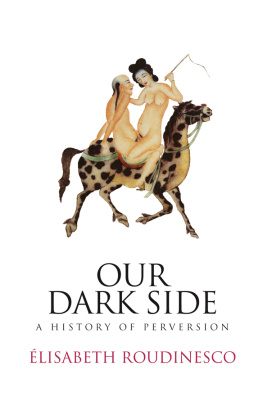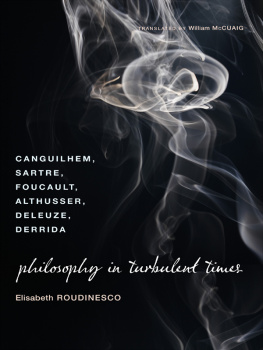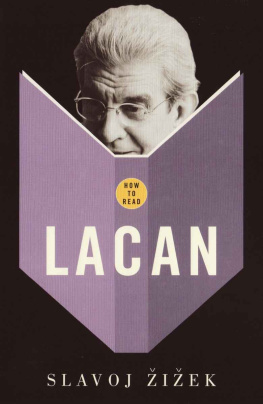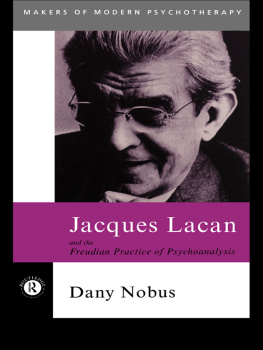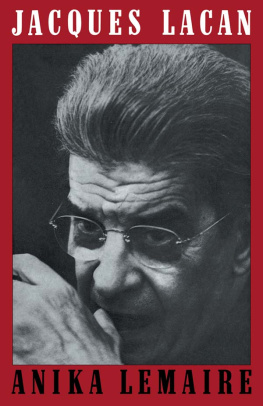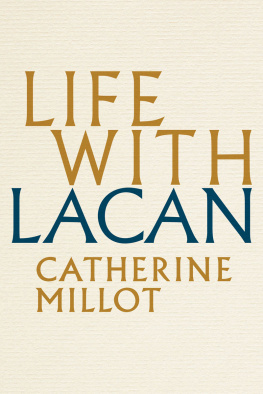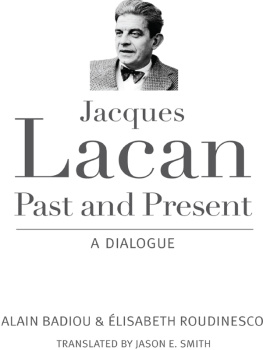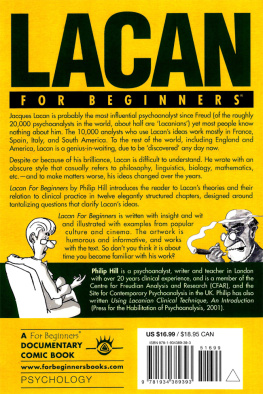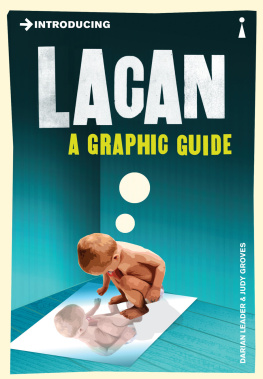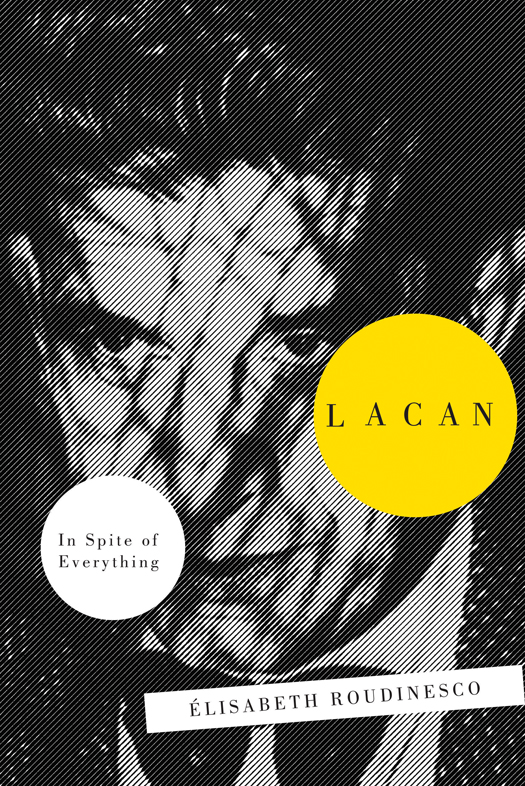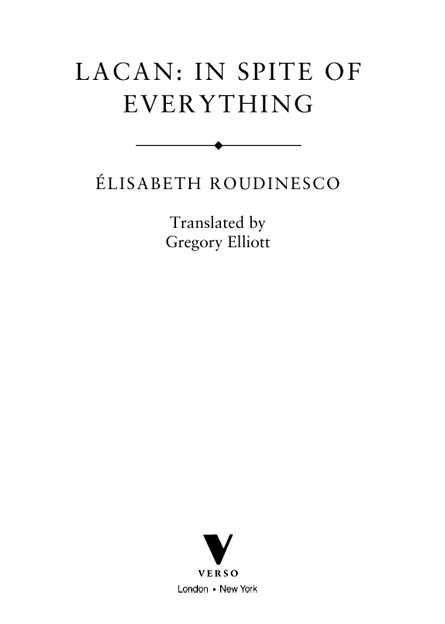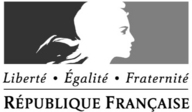This book is supported by the Institut franais as part of the Burgess Programme
(www.frenchbooknews.com)
This English-language edition first published by Verso 2014
Translation Gregory Elliott 2014
Previously published as Lacan, envers et contre tout
Seuil 2011
All rights reserved
The moral rights of the author have been asserted
Verso
UK: 6 Meard Street, London W1F 0EG
US: 20 Jay Street, Suite 1010, Brooklyn, NY 11201
www.versobooks.com
Verso is the imprint of New Left Books
ISBN-13: 978-1-78168-162-6 (PBK)
ISBN-13: 978-1-78168-163-3 (HBK)
eISBN-13: 978-1-78168-214-2 (US)
eISBN-13: 978-1-78168-640-9 (UK)
British Library Cataloguing in Publication Data
A catalogue record for this book is available from the British Library.
Library of Congress Cataloging-in-Publication Data
A catalog record for this book is available from the Library of Congress.
v3.1
Watch my Tlvision. Im a clown. Let it be an example to you and dont imitate me!
Jacques Lacan
Since he has to teach doctors, analysts or analysands, in the rhetoric of his speech Lacan provides them with a dumbshow equivalent of the language of the unconscious which, as is well known, is in its ultimate essence Witz, successful or unsuccessful pun and metaphor.
Louis Althusser
 CONTENTS
CONTENTSTHIRTY YEARS AFTER
Since the publication in 1993 of part three of my History of Psychoanalysis, wholly devoted to the thought, life, oeuvre and career of Jacques Lacan, I have often felt I would one day need to draw up a balance sheet not only of the legacy of this paradoxical master, but also of the way my own work was received within the psychoanalytical community and outside it.
No doubt I had mistakenly imagined that an objective work, based on a critical approach, would be such as to calm passions. And that perhaps Marc Blochs famous sentence Robespierrists! Anti-Robespierrists! which I used as an epigraph to my book, would finally make it possible to consider the fate of the man and the development of his thought dispassionately. While the result was largely positive, it is clear that the man and his work continue to be subject to the most extravagant interpretations, at a time when every generation has a tendency to forget what occurred prior to it unless, that is, it is engaged in celebration of the patrimonial, genealogical precedence of a supposed golden age, rather than in a reflection on the past that can throw light on the future.
Compounding this are the deliria that periodically emerge from unscrupulous polemicists or therapists who crave notoriety: Lacan as a Nazi, anti-Semitic, incestuous, criminal, fraudulent Freud; Lacan as a pervert, wild beast, Maoist, rapist, leader of a sect, charlatan, who beat his wives, patients, domestics and children, and collected firearms. Everything has been said on this subject and the rumour mill is in overdrive.
Our age is individualistic and pragmatic. It loves the present moment, estimation, economic determinism, opinion polls, immediacy, relativism and security. It cultivates rejection of commitment and elites, contempt for thinking, transparency, enjoyment of evil and perverse sex, and the expression of feelings and emotions against a background of explaining human beings by their neurons or genes as if a mono-causality could account for the human condition. The rise of populism in Europe, and the attraction it holds for some intellectuals who openly advocate racism, xenophobia and nationalism, are probably not unconnected to this state of affairs.
It must be said that the advent of a wild capitalism has contributed to the planetary extension of despair and misery, associated with the reactivation of religious fanaticism which serves as a political reference-point and sense of identity for some. In France, eight million people suffer from mental health problems and treat themselves as best they can: drugs, various kinds of therapy, alternative medicines, cures of every kind, personal development, healing, and so forth. Throughout the democratic world, self-doctoring practices are expanding immeasurably, to the exclusion of science and, invariably, reason. In this world the quest for pleasure not collective happiness has replaced the aspiration to truth. And because psychoanalysis is committed to the search for self-truth, it has come into contradiction with the dual tendency towards hedonism, on the one hand, and a retreat into identity, on the other.
By the same token, however, our age generates challenges to what it presents: it is when danger is at its height, said Hlderlin, that deliverance is at handemergence of a new desire for Revolution, outside Europe where it was born.
As regards the history and historiography of psychoanalysis, it is as if, despite the rigorous establishment of the facts and the exploration of several multi-faceted truths, Lacan in the wake of Freud and all his heirs were still regarded sometimes as a devil, sometimes as an idol. Hence Manichaeism and a denegation of history. And psychoanalysts are not to be outdone: jargon, melancholic posture, closure to social questions, nostalgia. They prefer memory to history, reiteration to establishing the facts, love of the old days to that of the present. They readily forget that tomorrow is another day to the extent that we are entitled to ask whether they do not sometimes conduct themselves as enemies of their discipline and inheritance.
It was in registering this state of affairs, and while observing the signs of a new hope, that I wanted thirty years after Lacans death, at a time when the gradual passing of a certain (supposedly heroic) age of psychoanalysis is evident and psychoanalysts are turning into organized psychotherapists in a profession regulated by the state to speak differently, and more personally this time. To speak of the fate of the last great thinker in an intellectual adventure that began to have an impact at the end of the nineteenth century, during the slow decline of the Austro-Hungarian Empire and the institutions bound up with it: the patriarchal family, monarchical sovereignty, the cult of tradition, a refusal of the future.
his objects in a word, his real, what has been foreclosed from his symbolic universe. A Lacan of the margins, the edges, the literal, carried away by his mania for neologisms.


